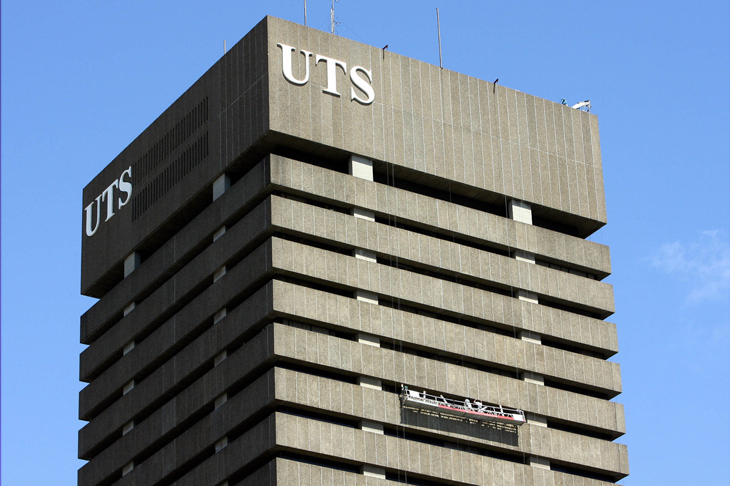I made a bad mistake this past weekend. I got to reading a few articles on the state of universities here in Australia and across the Anglosphere. Boy were they depressing! And if you happen to be a right-of-centre person politically, like me, the gloom comes on steroids. We have now had over eight years of Coalition governments stretching back to September of 2013 under prime ministers Abbott, Turnbull and now Morrison. In my view the state of our universities is worse today, by a good amount, than eight years ago. I say that as a law professor in a very good G8 university law school who has a named chair and plenty of scope to speak his mind. So in blunt terms, under almost a decade of Coalition governments, our universities have gotten worse, a lot worse. (Hint: Those international rankings are near-on worthless, gameable, irrelevant to undergraduate students, and sometimes produce laughable results.)
I will pass over quickly the incredible bureaucratisation of our universities as this problem is well-known and no politician appears to have any inclination to do anything about it. A friend sent to me the 2020 data from the University of Sydney. The spending on academic and non-academic employees was virtually the same – $784 million on the former and $724 million on the latter. So some 48 per cent of the University of Sydney’s employee expenses went to administrators. It could be worse than that, because my bet is that the definition of who counts as an academic has been made as loose and as inclusive (they love that word!) as is humanly possible. Would any sane person run his or her own business in a way that the admin. side of the business ate up half the salaries? Certainly in my sixteen years here at an Australian university the bureaucracy has grown and grown. I was stunned back in 2005 when I got here at how Australian universities were so top-down, bureaucratic and keen on emulating the former East German management model (or more kindly the General Motors one of the 1960s). I now look back on 2005 as the glory days when things were so much better. During my days teaching in law schools in Hong Kong and New Zealand we would have law faculty meetings where we actually decided key questions and did so by voting. In all my decade and a half in Australia there has never been a single important issue – not one – that the law school has decided on its own, by the faculty voting. Everything, absolutely everything, is dictated from above. As someone who knows a few things about constitutional law I know how much better democracies with real federalism (so not Australia) do compared to centralised, unitary states. Just sayin’!
But here’s some worse data for you, at least if you’re a conservative on campus. It comes from the US and relates to American universities. Much of it was able to be tabulated because in the US donations to political parties as well as voter registration numbers are public information and the Americans have also done a fair few studies on this imbalance up there. When you read it you can decide for yourself if you think it applies at least as much to Australia. (Laying my cards on the table: I think it does.) To start, the shift towards ever more left-leaning professors in the US has been huge. ‘Between 1995 and 2010, members of the academy went from leaning left to being almost entirely on the left’, as one academic there put it. The 2016 Stanford University history department ratio of Democrat to Republican is 34:1, and that was pre-Trump. Some parts of the university (no prizes for guessing) are way worse than that. Historian Niall Ferguson after his twelve years at Harvard commented that ‘conservative professors were not just a small minority but an endangered species that might go extinct. This skew to the left amongst faculty (and administrators) is now greater than ever’.
Professor Jonathan Haidt, a man of the political left you should know, says that he ‘considers the rapid loss of political diversity [on campus], over the last 20 years, to be the second-greatest existential threat to the field of social psychology, after the replication crisis’. Way back in 2011, Haidt was giving a lecture to a room of 1,000 academic psychologists. As he recounts it, he polled them for their political views. Only three put up their hands as being conservatives, causing Haidt to remark ‘this is a statistically impossible lack of diversity’ given that the wider American population more or less splits 50-50 politically.
Part of the problem, of course, is that universities are not welcoming places for conservatives. Every university in Canada, Britain, the US and here in Australia is today obsessed with ‘diversity’ concerns. Part of the huge increase in these bureaucracies are to oversee implementation of ‘diversity’ policies on campus. But it is always and everywhere diversity-focussed on the sort of reproductive organs you might have, or the type of skin pigmentation. Diversity of views and political outlook is never sought. (As a conservative I am wholly opposed to affirmative action-type ‘diversity’ programs, even for conservatives, but of course those on the Left are not against them for their favoured groups. Hint: not conservatives.) So indirectly, but effectively, the breadth of outlook on campus collapses. Add to that cancel culture, identity politics and the fact university administrators – this is the US data again – are even more left-leaning than the faculty they oversee, and boy is there a problem. Partly as a response to all this a new, anti-cancel culture university has just been founded in the US. It will be called the University of Austin with a Board that includes Steven Pinker, Jonathan Haidt, Ayaan Hirsi Ali, Nadine Strossen, Deirdre McCloskey (none remotely able to be characterised as ‘far right’ people, even with the facility with which that term is these days thrown around in the press, even the Murdoch press). This University of Austin’s new president (our vice-chancellor role), points to last year’s Campus Expression Survey that found that 62 per cent of university students feel unable to say the things they believe. I guarantee you it’s the same in this country, in part because a fair few students and the odd closet conservative academic come and tell me as much to my face.
But hey, the French Report says there isn’t a free speech problem on campuses in this country. Given the massive skew to the left of academics that is true, in a trite and formal sense. Left-wing views can be uttered without any chance at all that the administrators will come after you with the code of conduct. But see how many friends you make, or what you do to your promotion prospects, if you say you’re against the Voice or that you want to hire solely and without exception on merit alone. (The list goes on.)
And this worsening trend has been overseen by eight years of Coalition government. They must have been spending their time fixing the ABC, or reducing government spending, or repealing those ghastly hate speech laws. Right?
Got something to add? Join the discussion and comment below.
Get 10 issues for just $10
Subscribe to The Spectator Australia today for the next 10 magazine issues, plus full online access, for just $10.
You might disagree with half of it, but you’ll enjoy reading all of it. Try your first month for free, then just $2 a week for the remainder of your first year.














Comments
Don't miss out
Join the conversation with other Spectator Australia readers. Subscribe to leave a comment.
SUBSCRIBEAlready a subscriber? Log in